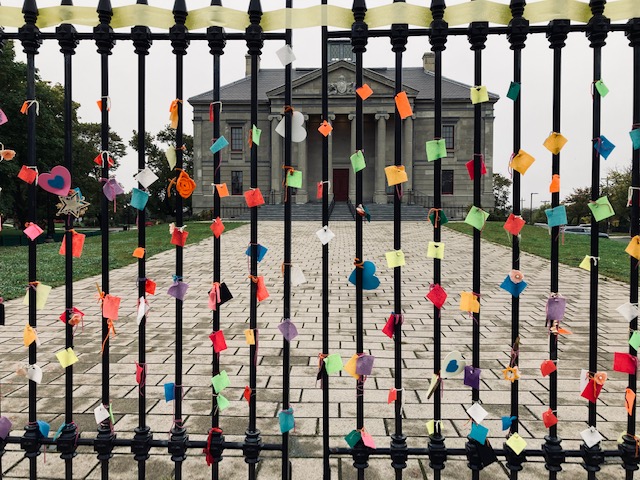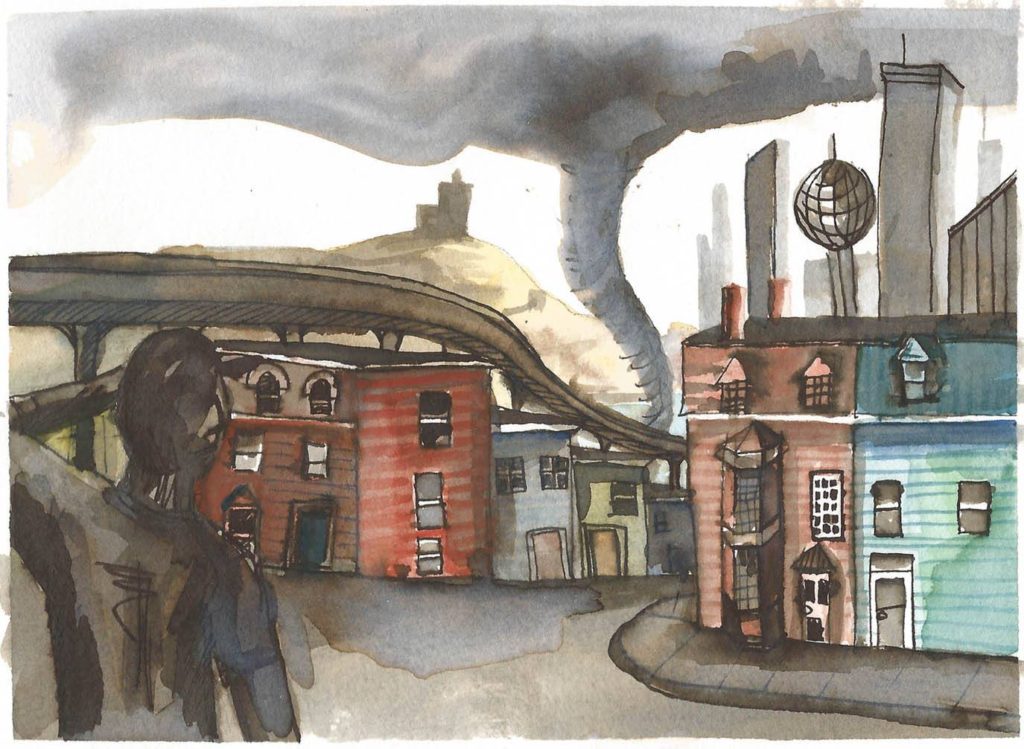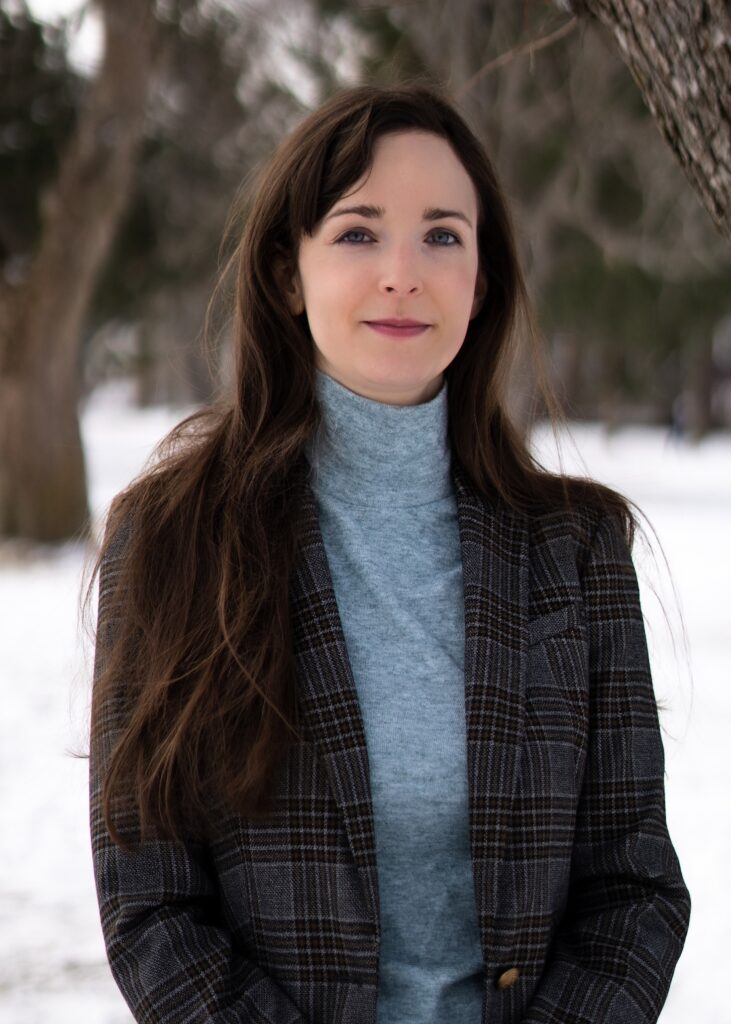“The novel is fiction, but my own experiences couldn’t help but colour the story”: Willow Kean debuts with Eyes in Front When Running
August 2023
Why a novel? How was the writing process different than playwrighting?
Even though it’s in the third person, so much of the story is internal; Cleo working through things in her head, her daydreams, her stream-of-consciousness. So a novel felt like the way to go. Playwrighting is only slightly less agonizing than writing a novel for me, I think because I’ve been steeped in theatre for so long. Writing a book was lonelier, if that makes sense. After the first draft of a play, you generally get to work stuff out in a room with a dramaturge and actors. A workshop will happen after a second and third draft as well, if you’re lucky. There’s reading, discussing, picking things apart, sometimes loose staging happens to make things clearer for the playwright. It’s generally a positive room with food and coffee and people who are happy to be there, and everyone is on board to help you out. A novel is you alone for years, then working with an editor via email, while you eat a bag of sour keys and cry at your desk.
Family structures and expectations frame much of the narrative. They are contemporary and realistic, real sources of both stress and solace. And talking of expecting, you don’t sugar-coat pregnancy and infant care. Nor struggles with infertility. How important were these issues to you?
They were huge for me. Firstly, because I’ve been fascinated for years with societal pressures on women and men to have babies. It’s baffling to me that it’s still acceptable for parents, friends, in-laws, relatives, or complete strangers to weigh in with their unasked-for opinions about whether or not you should grow a human being in your body. I know it comes from a place of love and warmth, but you know, when someone asks when you’re going to have a baby and you’ve just had a miscarriage a month ago, that shit’s not fun. Secondly, I think we were just starting to have real conversations about how difficult infant care can be for some women and then social media put us right back at square one. The novel is fiction, but my own experiences couldn’t help but colour the story; I put pen to paper and started writing about a couple trying for a baby and then I got pregnant literally two weeks later. I had a miscarriage, kept writing, got pregnant again, and this one latched on. Kept writing through my pregnancy, and thought I’d be the cool writer mom who wrote when the baby naps. Then when my son was born it was like I was hit by a freight train. I didn’t write a thing until he was a year and a half. I was depressed, I was exhausted to the point of despair, I was really sad for a long time. And I’m not afraid to admit that I missed my old life. Not that there weren’t profound moments of love and beauty and joy, but I was genuinely in awe of the moms who walked around Starbucks looking so composed with their lattes and sleeping babies when I was a complete mess. So, yeah … it was important for me to write about the reality of it. I wanted other women to read this and think, “Thank God it wasn’t only me.” I’ve had conversations with other moms about how unhappy they were that first year, but the conversations are hushed, and often don’t happen till your kids are in primary school. We need to un-hush these conversations and I guess this was my way of doing that.

Cleo travels a fair bit – she teaches English in Korea, visits Greece and France. Did you teach in Korea? Have you been to Europe?
I taught in South Korea on and off for three years between my mid-twenties and early thirties. I was lucky in that it gave me a jumping off point for a lot of travel around Asia, Australia, and Europe. I haven’t been to Greece (it’s on the list!) but I did travel to France when I was a teenager. It was the first time I’d ever left the country, and it changed my life. I was this wide-eyed kid from Labrador who ate an avocado for the first time, had my first ever proper peach, ate supper outside every night on a terrace with my host family. You couldn’t do that at home, you’d get carried away by blackflies. I was hooked. Food and travel became an obsession after that trip, which is pretty apparent when you read the book.
How much do you plot ahead?
I knew from day one how the story would end. There was something inside me that thought I’d be doing a disservice to the reader if it ended any other way. I think the ending is real, and believable, and I like to think people close the book and have a moment where they go, “Jesus, that happened to me once and I still don’t really know why.” A few people I know have reached out and said it really hit a nerve with them, and I like that. As for the middle bits, I don’t really plot ahead at all, isn’t that terrible? I knew the beginning and the end, and had a very vague idea of what would happen in between. “Morning Pages” are a big part of my practice when I’m working on something, so I would blearily write longhand in the mornings, think it was a load of garbage, go back a few weeks later and highlight what I thought was good, then piece it all together. I wrote all over the place, out of sequence, wrote the last paragraph when I had about another 30,000 words of plot to figure out. Don’t expect a writing manual from me anytime soon.
What have you read lately that you’d like to recommend?
I just finished Anne Enright’s essay collection Making Babies: Stumbling into Motherhood. Her fiction slays me, so I was so excited to read this, especially when I found out she wrote it in snippets while her babies slept. It’s dark and funny and so candid. It made my experience of early motherhood feel normal. Maggie Smith’s memoir You Could Make This Place Beautiful is on my nightstand now. Both books touch on motherhood and work, and the struggle that you don’t see coming until you have a human to look after and then suddenly there’s no time to look after your creative practice. But I’d recommend these books to anyone, not only mothers. The writing is just plain good.
What’s the best advice you’ve been given, as a writer or actor or playwright?
One writer told me to “vomit out a first draft.” Just get it on the page, and worry about the edits later. It’s so easy to self-censor at the beginning of a project, but if you’re not afraid to put it all out there, at least it’s there, and you can sift through what’s good. It takes so much longer when you’re precious about it. Same goes for acting, in a way. A good director will say, “I need you to go for it, and we’ll pull it back if we need to.”
What’s next for you?
Another novel is in its very early stages, and I’m really excited about buckling down in the fall and seeing where that takes me. My five-woman comedy Supper Club is being remounted at the end of October for another run at the LSPU Hall, followed by a provincial Arts and Culture Centre tour. It’s a funny, joyful, sometimes dark play about women and food and friendship. We’re beyond delighted to be remounting it, because it really seemed to strike a chord with a lot of people the first time around. And then a yoga retreat to Morocco in the spring, where I’ll inevitably spend every class thinking of what I’m going to eat next.
Eyes in Front When Running is published by Breakwater Books ($22.95, 310 pages).



